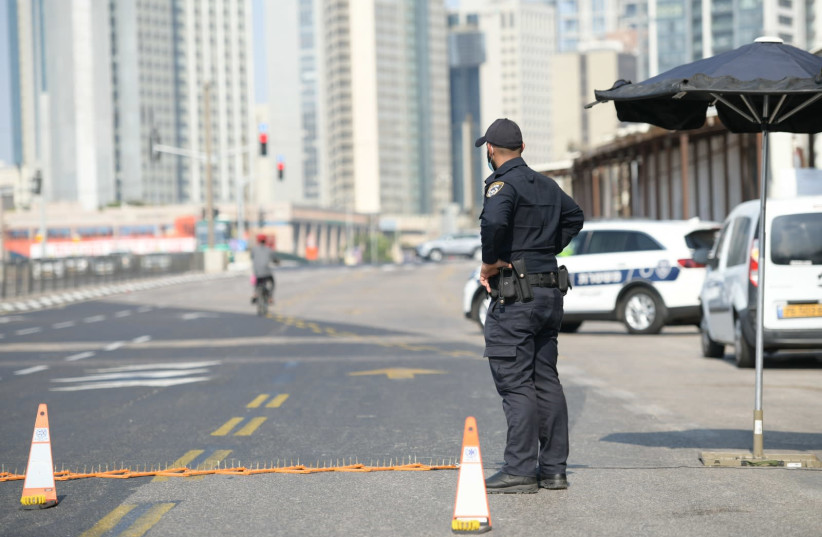Currently, there are 70,941 active cases of the virus in Israel, 849 who are in serious condition, among them 201 who are intubated.

As the country prepares to enter the Sukkot holiday under lockdown, the Health Ministry reported some 7,643 new patients were diagnosed with coronavirus the day before.
Currently, there are 70,941 active cases of the virus in Israel, 849 who are in serious condition, among them 201 who are intubated. The death toll stands at 1,629.
Israel went from being one of the country’s with the lowest mortality rates to a country with one of the highest per day for its population size. Moreover, the number of new patients per day is also among the highest in the world per capita – but this is connected to how many people are screened, as well.
On Friday morning, a report by the Coronavirus National Information and Knowledge Center, which is overseen by the IDF, showed that the percentage of positive results are high and rising – an indication that morbidity is even more widespread than the country thought.
However, the numbers are not necessarily indicating such a negative trend.
Israel’s partial closure began two weeks ago, when around 8.8% of all people screened were testing positive. Between September 18 and September 25 – the date that Israel enacted a more complete nationwide lockdown – that percentage rapidly spiked.
The infection rate rose to 10.4% on September 20, 11.2% on September 21, 12.2% on September 23 and 13.4% on September 25. It peaked on September 29 at 14.3%. But in the last few days, the trend is changing.
On Wednesday, the infection rate was 13% and on Thursday only 11.8%.
It is too early to know if the trend will stick, but it could mean that the closure is starting to work.
Recall that it takes between 10 days and two weeks to see the impact of any activity, and therefore the high numbers at the start of the lockdown were reflective of what happened before Israel closed. Moreover, as coronavirus commissioner Prof. Ronni Gamzu explained Thursday in a briefing, there was excessive gathering during the Rosh Hashanah holiday, which led to increased numbers.
During the first closure, Israel also saw an increase in the first couple of weeks of lockdown, before the numbers started to rapidly reduce.
In order to help ensure that, Israel Police said that it has completed its preparations for the Sukkot holiday, which begins Friday at sundown.
“The police will continue with increased operational activity throughout the country in order to maintain public peace, security and health,” the organization said in a statement.
Thousands of Israeli police officers, Border Police officers and volunteers, reinforced by IDF soldiers and inspectors, are charged with enforcing the latest set of regulations.
Among the latest: People are forbidden from hosting non-family members in their sukkahs; the offense will be punishable with a NIS 500 fine.
Moreover, the government and the Knesset decided that people must keep two meters from one another even in outdoor gatherings of 20.
Finally, people now will not be able to travel wherever they want to purchase essential products or obtain essential services. Instead, this will only be allowed when the products or services are not available within a kilometer from home.
“In view of the current state of national emergency and in order to maintain public health and prevent mass infection, the bulk of police activity will focus on smart supervision and enforcement of regulations with an emphasis on prohibited gatherings and restrictions on movement and trade throughout the country,” the police said.
At the same time, ultra-Orthodox community leaders have committed to trying to keep restrictions.
Several haredi rabbis have called on their followers to pray outdoors and refrain from hosting guests. Rabbi Chaim Kanievsky, who was diagnosed with coronavirus on Friday morning, told his constituents that they should be tested on the interim days of Sukkot because it could save a life.
Medical and rescue workers from the sector called on the ultra-Orthodox to abide by Health Ministry rules on Friday morning.
“We feel it is time to cry out and beg: Please keep the health guidelines,” the doctors wrote in the letter they circulated among the community, “We have no extra lives to give up.”
Prime Minister Benjamin Netanyahu convened a special meeting about the spread of coronavirus in the Orthodox sector, he said on Friday afternoon. At the meeting were the mayors of most major ultra-Orthodox cities and several haredi ministers, as well as Gamzu, Health Ministry director-general Chezy Levy, National Security Council head Meir Ben-Shabat and head of the ultra-Orthodox coronavirus program Roni Numa.
The prime minister promised additional assistance to the local authorities for fighting the virus and asked them to stress the importance of keeping the directives to their residents.
As reported by The Jerusalem Post
